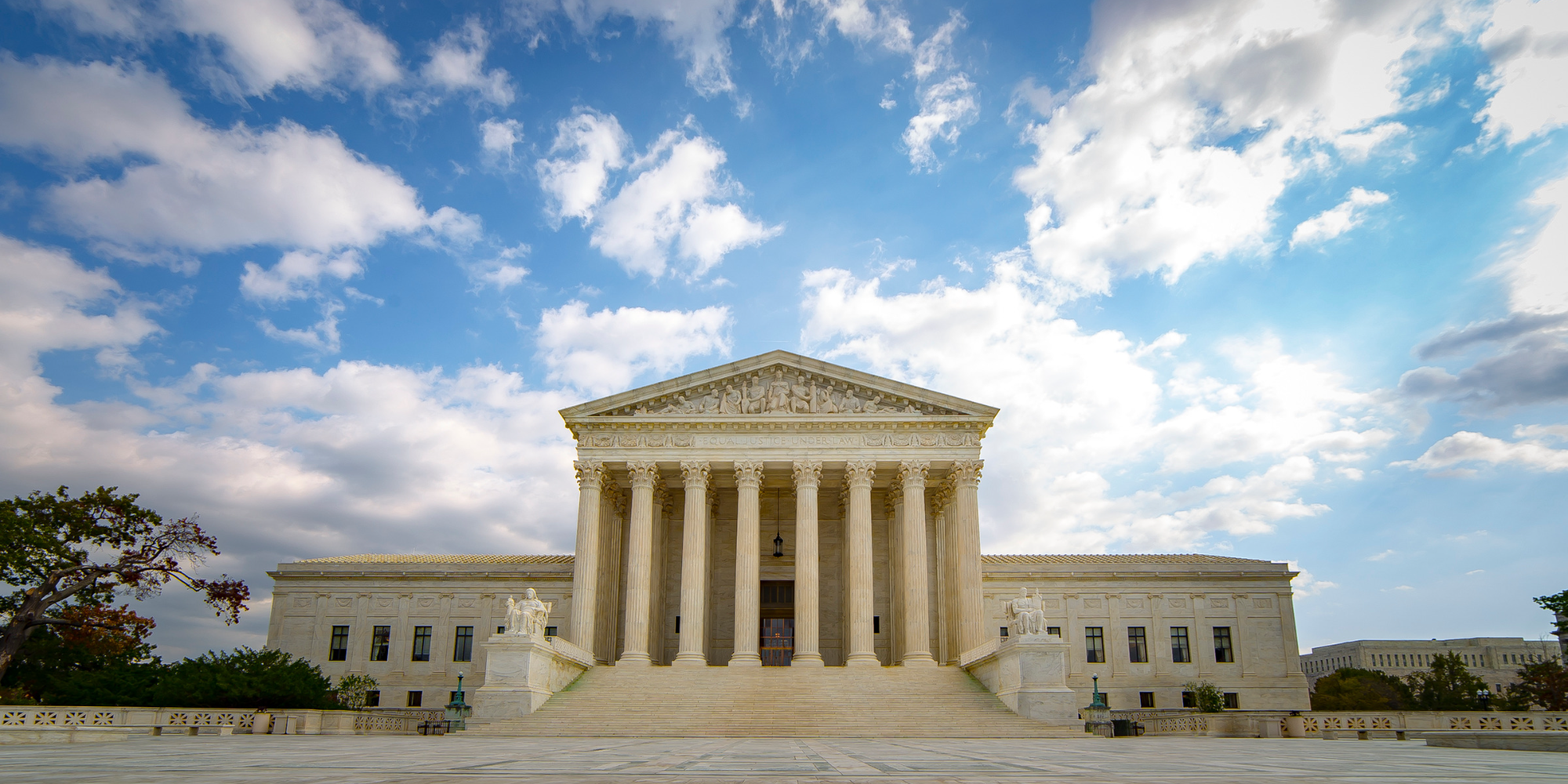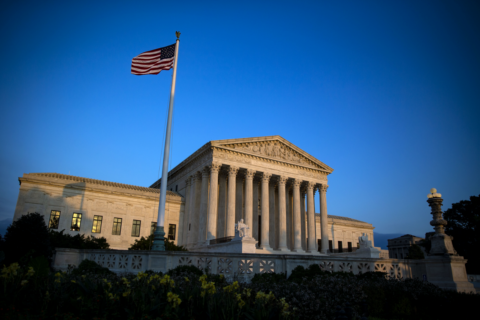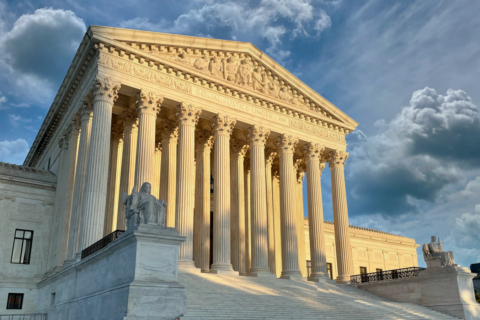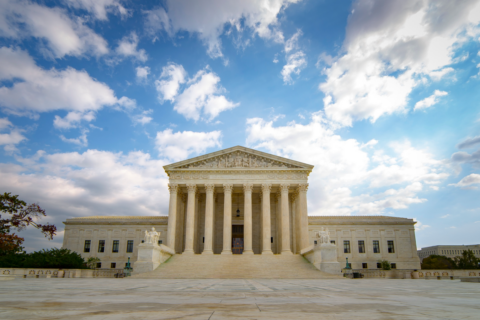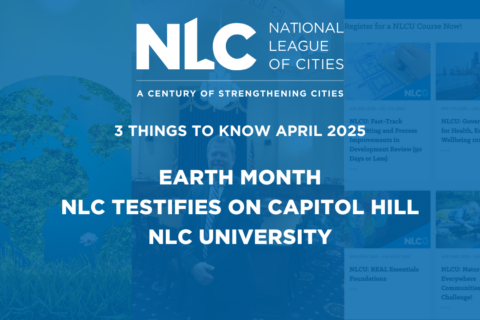The U.S. Supreme Court ruled on several cases impacting local governments during the 2022-2023 term, from federal elections management to a new test for what is considered “waters of the United States.” The National League of Cities, through partnership with the Local Government Legal Center (LGLC), participated in several amicus briefs supporting local government interests throughout the term.
NLC, the National Association of Counties, and the LGLC recently hosted a call with legal experts reviewing important decisions of the term impacting local governments.
Sackett v. Environmental Protection Agency
The issue in this case was to determine the proper test for assessing whether wetlands are waters of the United States (WOTUS) under the Clean Water Act. Previously, WOTUS has included “wetlands” that are “adjacent” to navigable water.
In their decision, the Court held the Clean Water Act extends only to wetlands that have a “continuous surface connection” with “waters” of the United States. The Court expressly discarded the “significant nexus” test from a previous case as “particularly implausible.”
The Court’s decision now limits the definition of WOTUS and some local infrastructure (such as water supply and treatment, flood control and stormwater management infrastructure) may now be excluded from the definition. Infrastructure that is not itself “waters” is likely excluded from the definition under this new ruling. Local governments will therefore need to await further EPA action as they go back to the drawing board and issue a new rule seeking to define “continuous surface connection.”
Tyler v. Hennepin County
The issue in this case was whether selling a home to satisfy a debt to the government and keeping the surplus value violates the Fifth Amendment’s Takings Clause. Under Minnesota State law, property taxes become a lien against the property once they are assessed and if they are not paid during the year they are due, they become delinquent, at which point a county may obtain a judgment against the property.
In a unanimous decision, the Supreme Court ruled that Hennepin County did violate the Takings Clause of the Fifth Amendment by keeping the surplus equity from selling the homeowners condominium after she failed to pay her property taxes. The violation occurred not with the sale of the property for failure to pay property taxes or when the county kept the tax debt (including interest and penalties), but rather, because the county kept the surplus equity.
Under this ruling, local governments in states that allow for retention of the excess of a sale will need to ensure they are not keeping any surplus equity after the sale of a forfeited property. Even if the local government itself does not keep the surplus equity, if the former property owner is not able to get the surplus equity back, state and local governments may be liable for a Taking. For example, if a private tax certificate holder is able under state law to retain the surplus equity after paying off the tax debt and interest, the homeowners may still be able to bring a takings claim against the government.
Allen v. Milligan
The issue was whether the Alabama legislature’s 2021 redistricting map violated Section 2 of the Voting Rights Act, which prevents election practices or procedures that discriminate based on race. In a 5-4 decision, the Supreme Court affirmed the lower court’s decision and found that the Alabama Legislature’s maps likely diminished Black voters’ rights in the state.
The Court affirmed to bring a successful Section 2 claim, one must meet the preconditions determined in the 1968 Thornburg v. Gingles decision:
- The minority group must be sufficiently large and [geographically] compact to constitute a majority in a reasonably configured district;
- The minority group must be able to show that it is politically cohesive; and
- The minority must be able to demonstrate that the white majority votes sufficiently as a bloc to enable it . . . to defeat the minority’s preferred candidate.
The Supreme Court found the preconditions were met and therefore demonstrated that the Alabama legislature likely violated Section 2 of the Voting Rights Act. For local governments, this ruling upholds equitable voting rights and equitable access in local election administration and ensures that congressional representation is reflective of local diversity.
Moore v. Harper
The issue in this case was whether a state legislature has the sole authority to regulate federal elections. A key theory in play was the Independent State Legislature Theory (ISLT), which proposes the Constitution delegates authority to regulate federal elections for Senate and House of Representatives within a state to that state’s legislature without any checks and balances from state courts. The court rejected the ISLT and held that the Federal Elections Clause “does not insulate state legislatures from the ordinary exercise of state judicial review.”
In doing so, the court found that although the U.S. Constitution gives state legislatures authority to regulate federal elections within their jurisdiction, state courts can properly supervise the legislature’s exercise of this power.
The U.S. Supreme Court’s majority opinion keeps the elections system status quo, avoiding a two-tiered election system, one for federal elections where state legislatures could operate unchecked by state constitutions and state judicial review, and one for state elections where those normal checks are in place. Such a system could have greatly impacted local governments in their role in administering elections from mail in ballots and recounts, polling locations, voter ID requirements and emergency responses. The decision reserved the ability for federal courts to review state court decisions regarding federal elections, including decisions interpreting state law. But the decision did not provide parameters for that review.
Groff v. DeJoy
The issue was to determine what is considered an “undue hardship” under Title VII of the Civil Rights Act of 1964, which rising to that level would excuse an employer from providing a religious accommodation. Previously, courts relied on a standard for “undue hardship” as defined in the Trans World Airlines, Inc. v. Hardison’s decision which was defined as “any effort or cost that is ‘more than …de minimis”. De minimis refers to a standard meaning too trivial or minor to merit consideration.
In this case, the Supreme Court provided in a unanimous decision that to demonstrate an “undue hardship,” an employer must show “a burden is substantial in the overall context of an employer’s business.” The court sent the case back to the Third Circuit to consider again, under this new defined standard. While the new opinion changes the standard of “undue hardship” which will likely result in new guidance from the Equal Employment Opportunity Commission (EEOC), the Court also agreed that “a good deal of the EEOC’s guidance in this area is sensible and will, in all likelihood, be unaffected by [its] clarifying decision.
Given the court’s ruling, all employers, including public employers, will need to immediately review their employment policies and practices regarding religious accommodations. This will require immediate training for managers and human resources employees. Local government employers will need to wait for additional guidance from courts and the EEOC to determine what exactly constitutes “substantial costs.”
303 Creative v. Elenis
The main issue in this case was whether the creation and sale of a wedding website to the public is considered speech, which would be protected under the First Amendment, or rather commercial activity / conduct that incidentally conveys speech, which would not be protected.
The Supreme Court held that Colorado’s public accommodation law violates the First Amendment’s Free Speech Clause by compelling the speech of a business owner engaged in expressive activity. The potential impacts of this ruling may be broad, as the decision could open the door for any business engaged in expressive activity to refuse to provide services to individuals regardless of antidiscrimination laws that would otherwise protect those individuals. The court has not defined the parameters of expressive activity and that will likely be defined by the lower courts through litigation.
Exceptions to public accommodation laws, as the court has ruled in this case, may prove to be difficult for cities in their efforts to uphold and/or create local anti-discrimination ordinances. Cities will need to be aware of how public accommodation laws may be impacted by this recent decision in their enforcement of state or local anti-discrimination law as it relates or conflicts with First Amendment rights.
About the author:
Amanda Karras is the Executive Director and General Counsel for the International Municipal Lawyers Association (IMLA). NLC, IMLA, and NACo formed the Local Government Legal Center (LGLC) in 2023, a coalition of national, local government organizations to provide education to local governments regarding the Supreme Court.
